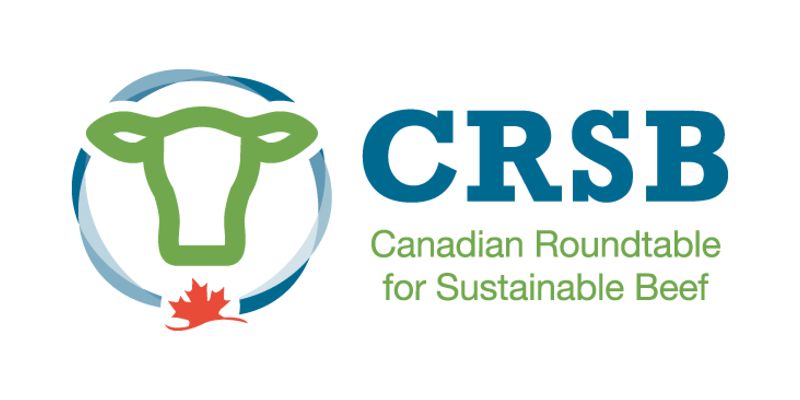Canadian Roundtable for Sustainable Beef releases second National Beef Sustainability Assessment (NBSA)

Key progress includes reduction in greenhouse gases, contribution to carbon storage, biodiversity and wildlife habitat; social responsibility strengths and opportunities identified
CALGARY, Alberta, Jan. 15, 2024 (GLOBE NEWSWIRE) — Today, the Canadian Roundtable for Sustainable Beef (CRSB) released its second and highly anticipated National Beef Sustainability Assessment (NBSA) and Strategy report. The assessment reflects three years of in-depth scientific analysis and highlights the Canadian beef sector’s progress between 2014 and 2021 on sustainability indicators like greenhouse gas emissions, biodiversity, carbon storage, people’s health and safety, animal care, economic contributions and more. The report also includes accompanying sustainability strategies that identify areas for continuous improvement.
The report was completed as part of over $2.8 million in funding for the CRSB under the Government of Canada’s AgriAssurance Program – National Industry Association Component, an initiative under the Sustainable Canadian Agricultural Partnership.
Key environmental Improvements include a 15 per cent reduction in greenhouse gas emissions to produce 1 kg of beef (boneless and consumed) since 2014. This improvement is largely attributed to increased efficiencies of cattle growth, leading to a smaller overall carbon footprint as fewer resources (e.g. land, water and feed) are required to produce the same volume of beef. “It’s exciting to see the 15 per cent reduction in GHG emissions intensity, which puts us on track to achieve the 33 per cent reduction 2030 goal that the industry has set,” says Ryan Beierbach, Chair of the CRSB and Saskatchewan beef producer.
The report also shows that land used for beef cattle production is estimated to store 1.9 billion tonnes of soil organic carbon, and with overall loss of habitat, Canadian beef farmers and ranchers play an important role in preserving intact critical habitat wildlife need for reproduction and feeding.
“I am proud of the Canadian beef industry’s commitment to continuous improvement, and the progress already made on our sustainability journey. This assessment demonstrates the important role Canadian beef producers and our members play in advancing sustainability, and what we can accomplish when we work together towards common goals,” Beierbach adds.
A peer-reviewed scientific paper highlighting the Environmental Life Cycle Assessment results has been published in the Canadian Journal of Animal Science1.
Key Findings
- Producing 1 kg of beef (boneless and consumed), now creates 15 per cent less greenhouse gases than in 2014 (Aboagye et al., 2024), on track towards the 2030 Canadian beef industry goal of a 33 per cent emissions intensity reduction.
- Land used for beef production is estimated to hold 1.9 billion tonnes of soil organic carbon, storing nearly 40 per cent of the total soil carbon across Canada’s agricultural landscape. This is equivalent to annual CO2 emissions from over two billion cars (~58 cars for every Canadian).
- Land used for beef production contributes the majority of critical habitat that wildlife needs for both reproduction (74 per cent) and feeding (55 per cent) when all of Canada’s crop and pastureland is considered. Despite an overall loss of wildlife habitat on Canada’s pasture and cropland, beef’s share within what remains has increased, demonstrating the importance of beef production in keeping these areas intact.
- The conversations around farmer stress and mental health have grown louder, increasing awareness. Work continues to reduce the stigma of mental health challenges across the beef supply chain.
- Animal care continues to be a top priority for the Canadian beef industry. Surveillance data shows no risk of resistance from Category I antimicrobials (very high importance to human medicine) indicating that tools to treat sickness in beef cattle is not a risk to human health.
- Demand for Canadian beef remains strong with Canadian consumers (up five per cent) and around the world (16 per cent increase).
- For every worker employed by farm-level production of cattle in Canada, 2.5 workers are employed either directly or indirectly in the Canadian economy. And for every worker employed in the Canadian meat packing industry, another 3.4 workers are employed, including direct and indirect employment.
- The Canadian cattle industry contributes $51.5 billion in the production of goods and services, $21.8 billion to the Canadian GDP and $11.7 billion in labour income.
Measuring sustainability performance is only the first step; having clear goals and actions for achieving continuous improvement is critical. Therefore, a National Beef Sustainability Strategy supports the Assessment, outlining tangible, ambitious and achievable actions and opportunities for collaboration in high priority areas for the CRSB and its members over the next several years.
“The Canadian beef sector is committed to transparency and continuous improvement in sustainability,” adds Beierbach. “We look forward to further collaborations and innovations to make a positive impact and meet our goals for the Canadian beef industry’s social, economic and environmental performance.”
Visit crsb.ca/benchmarks for more information on the CRSB’s National Beef Sustainability Assessment & Strategy.
ABOUT THE CRSB
The Canadian Roundtable for Sustainable Beef (CRSB) is a multi-stakeholder not-for-profit organization that advances, measures and communicates continuous improvement in the sustainability of the Canadian beef value chain. The CRSB drives recognition and continuous progress in Canadian beef through sustainability performance measurement, a voluntary 3rd party sustainability certification program, and projects and initiatives aligned with strategic goals. Learn more at crsb.ca.
For media inquiries, contact:
Lisa Libin
Brookline PR
Email : llibin@brooklinepr.com
For more information about the CRSB, contact:
Andrea White
Director, Marketing and Stakeholder Relations
Canadian Roundtable for Sustainable Beef
Email: info@crsb.ca
https://crsb.ca
Source: westerngrocer.com

